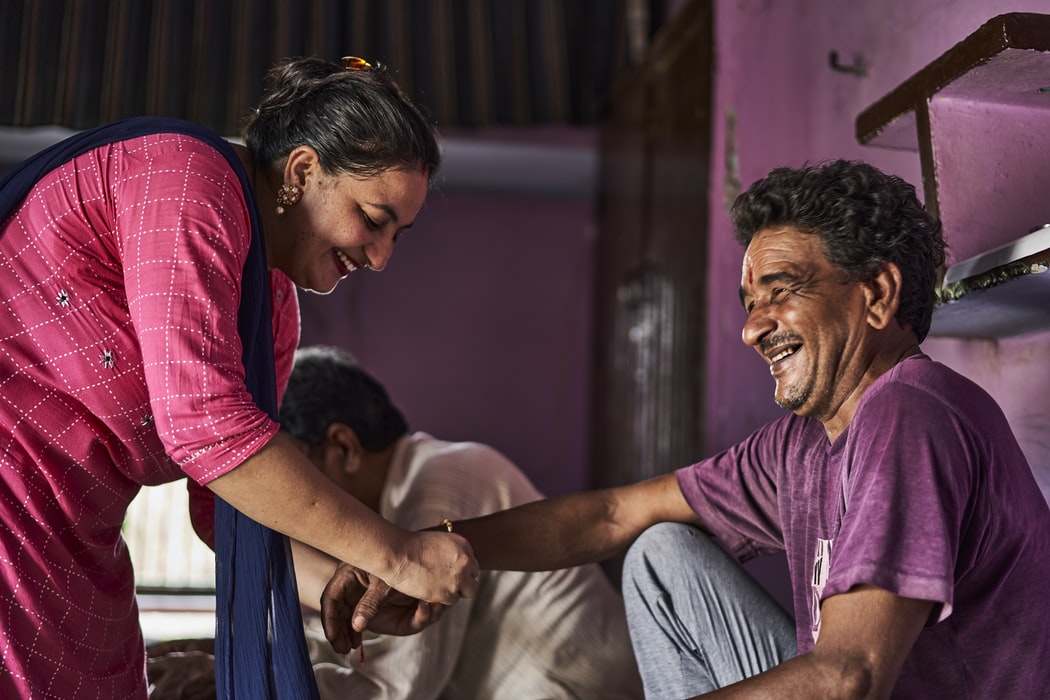“हाम्रो संस्कृतिमा आजको दिन रक्षा बन्धन मनाउंछौ, यो “राखी” भनेर किन अरुको संस्कृतिमा हामी अन्धभक्त भएर पछि लाग्न खोज्दै छौं ?“
Translation: In our culture, we celebrate Raksha Bandhan, why are we blindly following others’ culture with the name of “Rakhi”?
After some mindless scrolling of my news feed enjoying my dark-textured black tea, this particular post made me stop, re-read it, and think.
If you do not know about this festival, click here.
To be fair, I have witnessed a lot of “Rakhi” celebrations and pictures in my social media (mostly on my facebook, twitter & instagram) today. It seemed like the people celebrating “Rakhi” and tying the thread to their respective brother(s) this year were in larger quantity than in the past years. I wouldn’t want to deep dive into religious history and cultural accounts about this festival because foremost, I’m not an expert in these matters; and second, my interest is more drawn by the human behavioral aspect of this “increasing” tendency of “Rakhi” celebration. So why do people adopt this foreign culture?
Turns out, it’s basic human behavior.
ZOOMING OUT
As Zalmy (2017) writes in his opinion, festivals – in general – act like stress relievers and help us balance our emotions. Festivals provide us with the opportunity to come together with family, relatives, and friends together in a bond of love. Phelps (2016)’s article published on FestivalMag supports this argument by saying that festivals could help reduce stress levels.
“Rakhi” is the celebration between siblings. Researches have shown that bonding with siblings act as a hidden resource in therapy. A research article published by Lewis in 1990 in Journal of Strategic and Systemic Therapies concludes with clinical examples describing three ways to involve siblings in therapy: as participants, consultants, and mutual nurturers. A logical conclusion here is that the “Rakhi” festival, which celebrates this therapeutic experiences through bonding, is justified across all cultures, not just to any one particularly.
Another research article published by Cicirelli in 1989 in Psychology and Aging has come to a finding that closeness of the bond to a sister (by both men and women) was related to less depression.
ZOOMING IN
There’s a famous dialog from the movie Red Sparrow, “Every human being is a puzzle of need. You must become the missing piece, and they will tell you anything.“
Whatever any particular person thinks, feels, and does is the reflection of his/her needs being either met or unmet. And as Dr. Marshall Rosenberg quotes, “When we are in contact with our feelings and needs, we humans no longer make good slaves and underlings.“
When we are in contact with our feelings and needs, we humans no longer make good slaves and underlings.
– Dr. Marshall B. Rosenberg, Non-Violent Communication: A Language of Life
To better understand the human needs, we can either look inside the “Needs Inventory” of The Center for Non Violent Communication (CNVC) or Max-Neef’s classification of fundamental human needs.
My older article on the pandemic and human behavior was based on the fundamental needs. The COVID-19 pandemic has caused few fundamental human needs to be unmet – especially the need for recreation (leisure), need for affiliation, affection, and connection.
SO?
So, the increased number of “Rakhi” celebrations can be accredited to the fulfillment of these needs. People needed to have fun after the 100+ days of lockdown. They needed to feel connected on a different way with their siblings, because the bonding eventually contributes to a better mental-health and overall well-being.
To overcome this need for recreation and connection, people blended in the “foreign” culture with their own. One can’t really point fingers at anyone.
If you’re wondering why do people “under-value” our own cultural practices, then a quick answer to that would be “Path of Least Resistance (or Principle of Least Effort)“, and I will explain it in my next article. Stay tuned!


